supervisedScorer
Incrementally score events by learning feedback from users.
The supervisedScorer operator predicts the user score when you define the lhub_score.
When you have multiple tables that contain lhub_scores, it must be combined and assigned a final score, where the final score is a combination of manual scoring using machine learning models.
supervisedScorer combine tables using autojoin operator by selecting distinct rows. You can manually assign scores for 2 rows and update the table, the rest of the rows will be updated with the final score automatically.
For example, if the predictor assigns a score of 6 but in the rules, we assigned 9, the final result will be 9.
Operator Usage in Easy Mode
- Click + on the parent node.
- Enter the Supervised Scorer operator in the search field and select the operator from the Results to open the operator form.
- In the Table drop-down, enter or select a table to apply the operator.
- Click Run to view the result.
- Click Save to add the operator to the playbook.
- Click Cancel to discard the operator form.
Usage Details
supervisedScorer(tables:TableReference[])
Input
TableReference - List of input tables that contain lhub_scores.
Output
A scored table where each row is scored based on the model that was learned from all previous manually assigned scores. It will return lhub_score, mindistToRule (closest distance to ruleset), isFromRuleset (boolean), and score columns from tables.
Example
InputTable = userScore
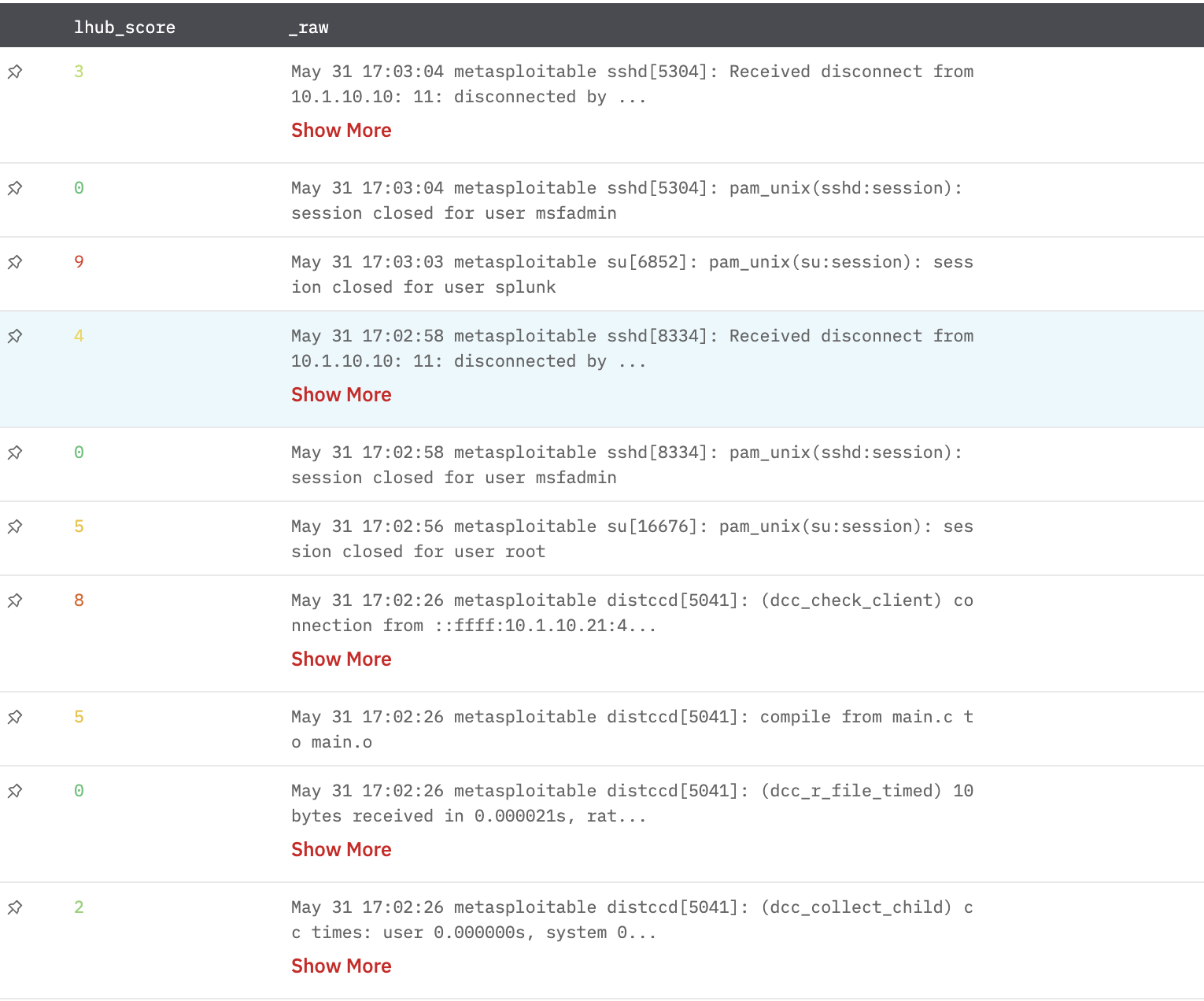
InputTable = ipScore
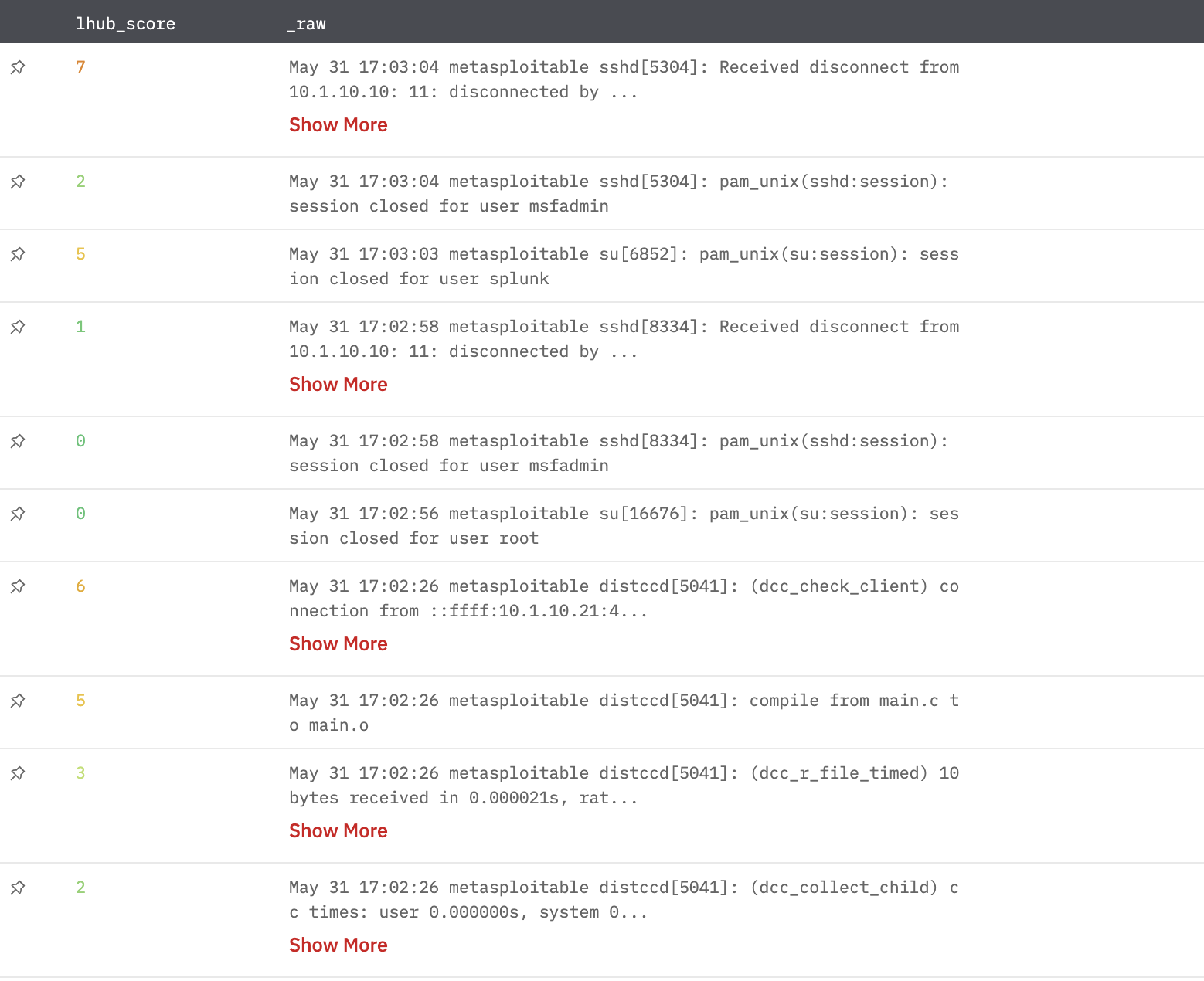
InputTable = bytesScore
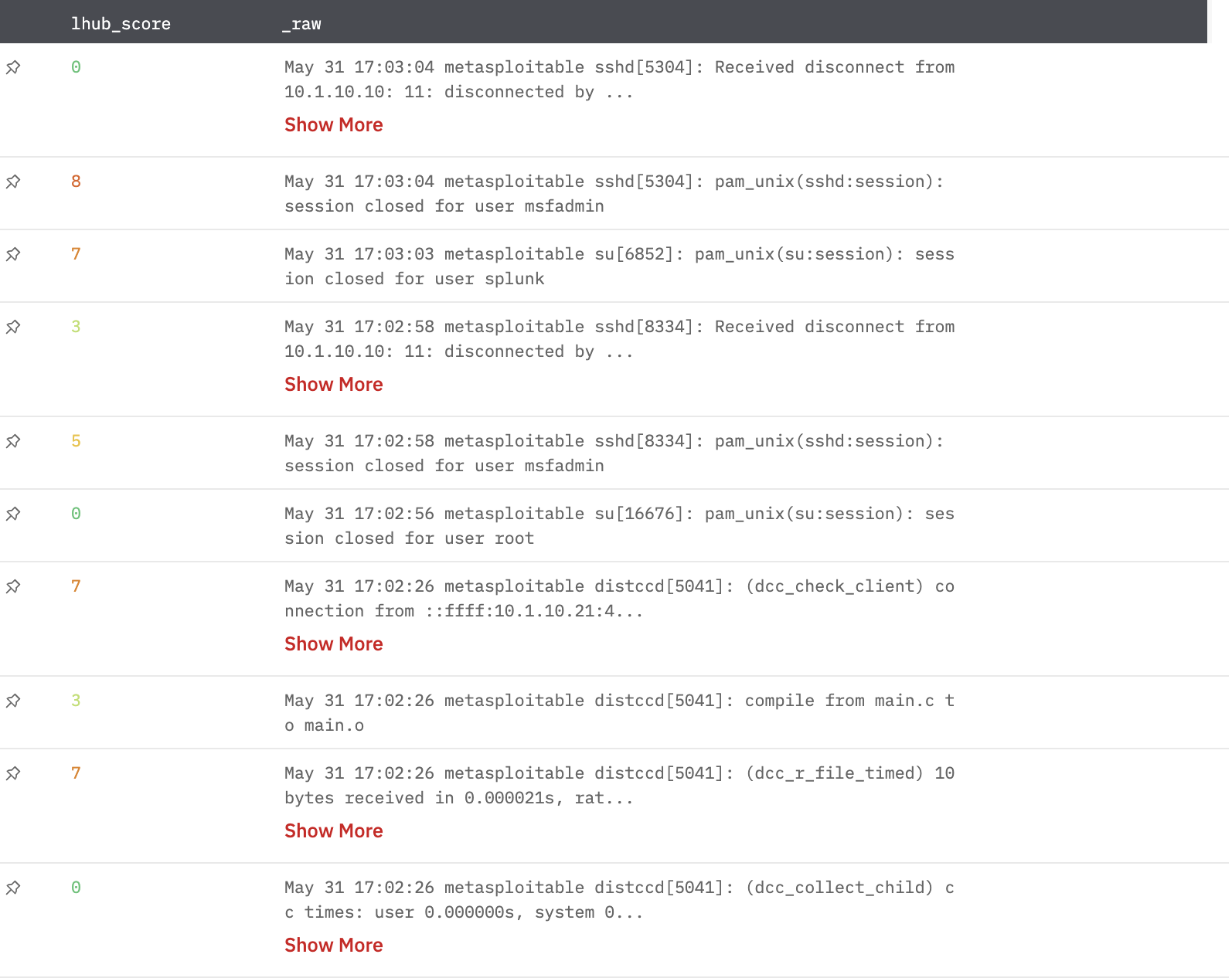
Output
When you combine the multiple input tables that contain lhub_score in all parent nodes i.e. userScore, ipScore, and bytesScore, the columns will be replaced by the final table name itself.
supervisedScorer([userScore, ipScore, bytesScore])
Here, 3 new columns added i.e. lhub_score, isFromRuleset, and mindistToRule.
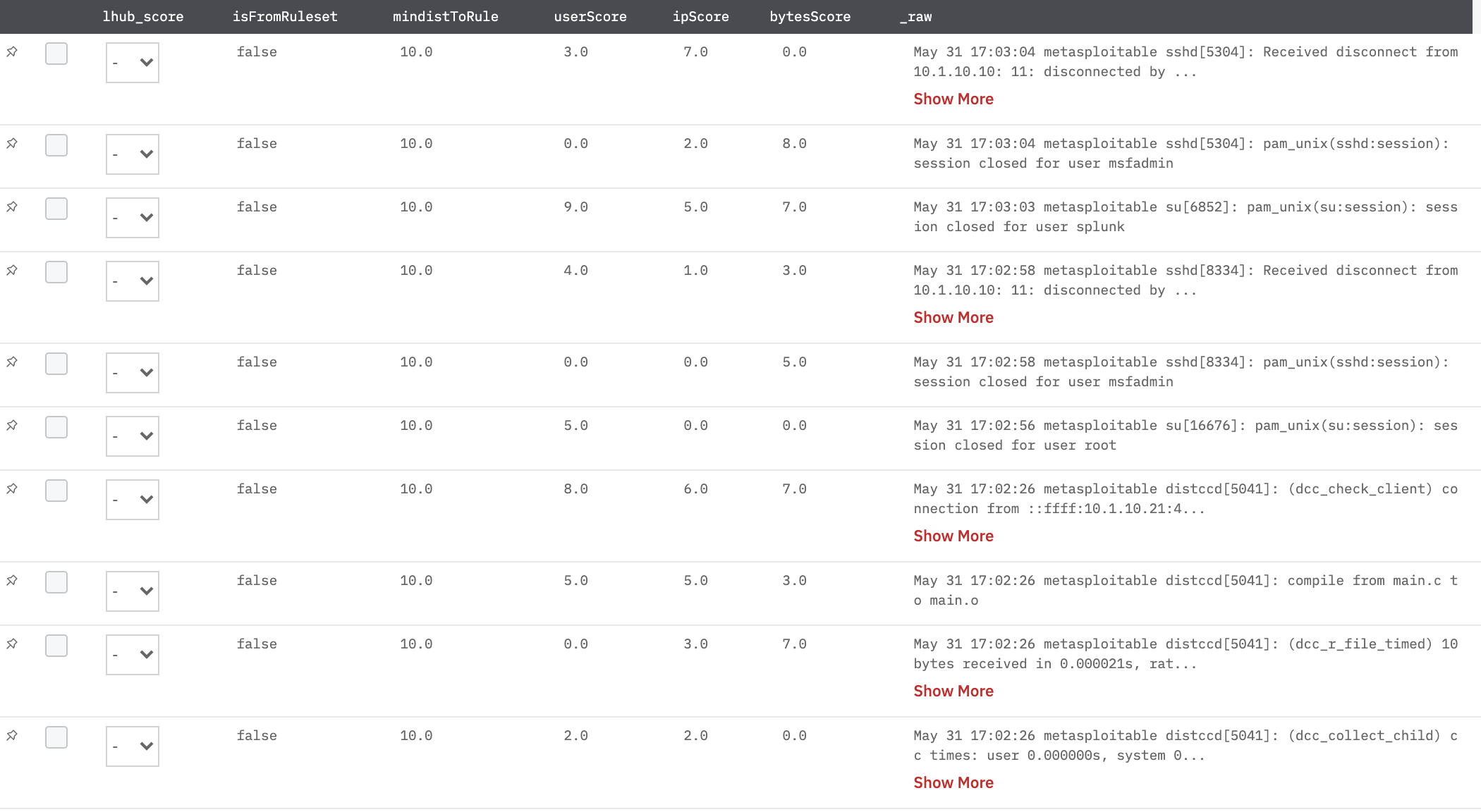
Initially, all lhub_score in the output table will be "-" where you can assign any value 0 - 10 to that specific row.
When you assign lhub_score for 2 or more rows, the operator will train a model and predict the scores for the rest of the events and will assign new scores to unscored ones based on the input columns defined.
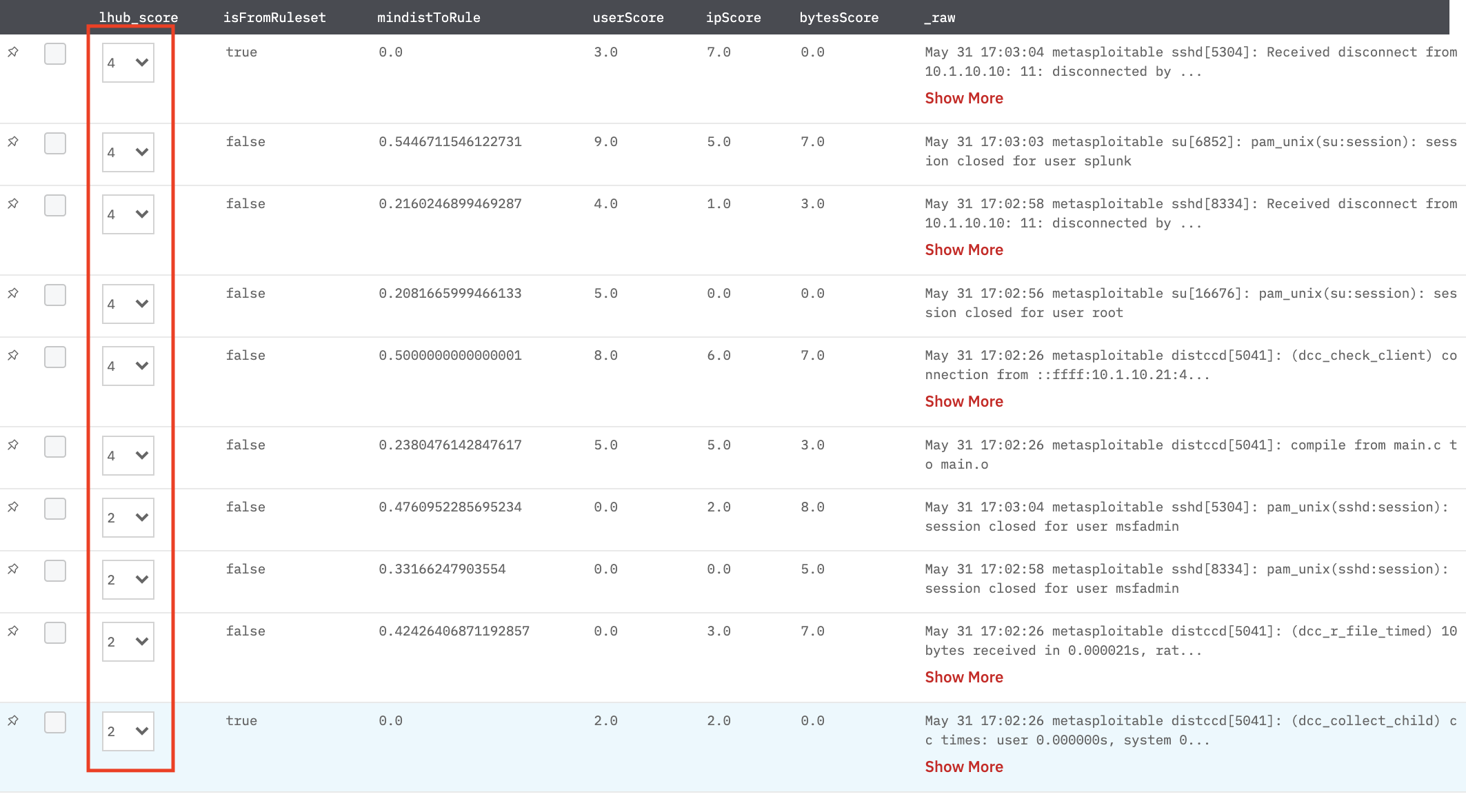
Updated over 2 years ago